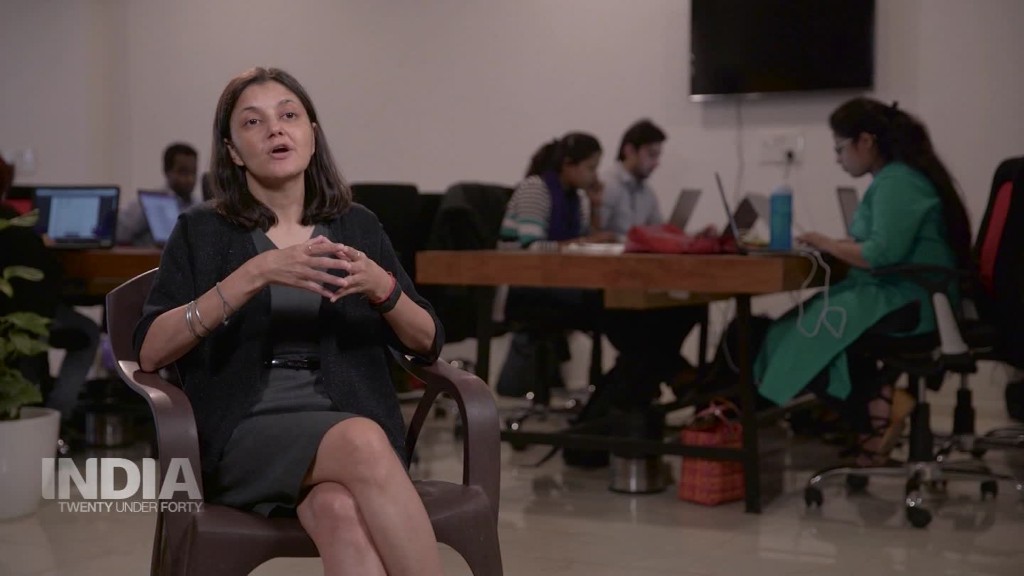
India's fast growing economy has a big problem: Not enough women are working.
"This has a very significant cost to growth," said Frederico Gil Sander, author of a new report by the World Bank.
India is growing at an enviable 7%, and the World Bank predicts that will increase to 7.5% by 2020.
But that could be much higher if it could increase the proportion of women in work.
Based on 2012 figures, the last year for which official data is available, only 27% of Indian women aged 15 or older were working or actively looking for a job.
That's down from 37% in 2005, despite a strengthening economy and growing middle class.
That means India ranks 120 out of 131 countries, below far smaller economies such as Bangladesh, Vietnam and Indonesia and on par with Pakistan, Egypt and Yemen.
The World Bank estimates that increasing the rate of female workforce participation by as little as six percentage points could push growth up to 7.9%. If India closes just half the gap with Indonesia and Bangladesh, its economy could grow at 8.5% a year.
"If India were able to increase the [female] labor force participation even more, the impact on potential GDP would be proportionally greater," Sander said.
Related: India's high tax on sanitary pads sets off storm of protest
Women are abandoning agricultural work as they move into India's booming cities. But they're finding it hard to get a job when they make the move, Sander explained.
"Many of the women want to work, but the fact is that not enough jobs are being created that women can take up," Sander said.
Related: This 'modest fashion' startup is giving Muslim women a voice
The Indian government has tried to make it easier for women to work, most recently by doubling the paid maternity leave firms must provide. But many say the generous policy is a double-edged sword that could deter companies from hiring women in the first place.
The World Bank says there is no substitute for creating more jobs and ensuring women can access them.
"Getting women into the labor force and into productive jobs will give the economy a boost, which is much needed," said Junaid Ahmad, the bank's country director for India.
"Focusing on inclusion... is the next agenda for India to achieve the double-digit growth that it can achieve."


